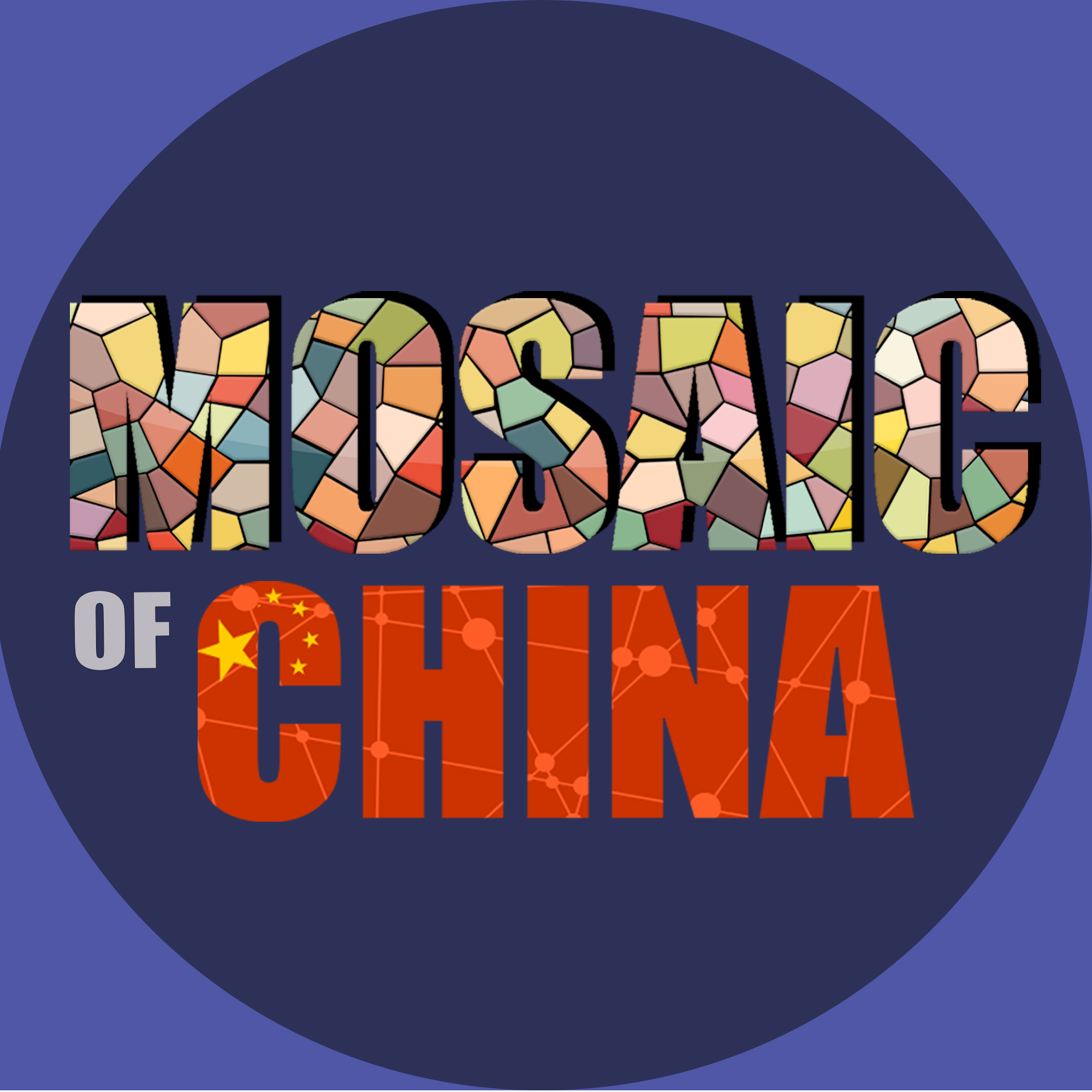Season 03 Episode 13
The details below are for the REGULAR version of this episode. For the PREMIUM version, subscribe on Apple Podcasts, Patreon (outside China) or 爱发电 (in China).
Episode 13: The Hotpot Homo
XIE Xiao - Volunteer Organiser, CINEMQ & The Shanghai Queer Film Festival
Original Date of Release: 06 Dec 2022.
There are two themes of today’s show: the first is location, and the second is queer identity. There exist derogatory stereotypes about both, which could be described as either xenophobic or homophobic. Today's conversation touches on the intersectionality of these stereotypes in China, and the way in which we can either casually dispel them or defiantly embrace them. In either case, we can have fun joking about them and stripping them of their venom.
As well as being involved in queer cinema projects such SHQFF and CINEMQ, today's guest Xie Xiao participates in many other queer voluntary groups in China. And he has many stories that reflect his own personal background, as well as those of the people with whom he engages in the China LGBTQ+ community.
The episode also includes catch-up interviews with 'COCOSANTI' from Season 02 Episode 05, and Sebastien DENES from Season 01 Episode 11.
Season 03 is supported by Shanghai Daily - the China news site; Rosetta Stone - the language learning company; naked Retreats - the luxury resorts company; SmartShanghai - the listings and classifieds app; and JustPod - the podcast production company.
To Join the Conversation and Follow The Graphics…
View the Instagram Story Highlight, the LinkedIn Post or the Facebook Album for this episode. Alternatively, follow Mosaic of China on WeChat.
To view the images below on a mobile device, rotate to landscape orientation to see the full image descriptions.
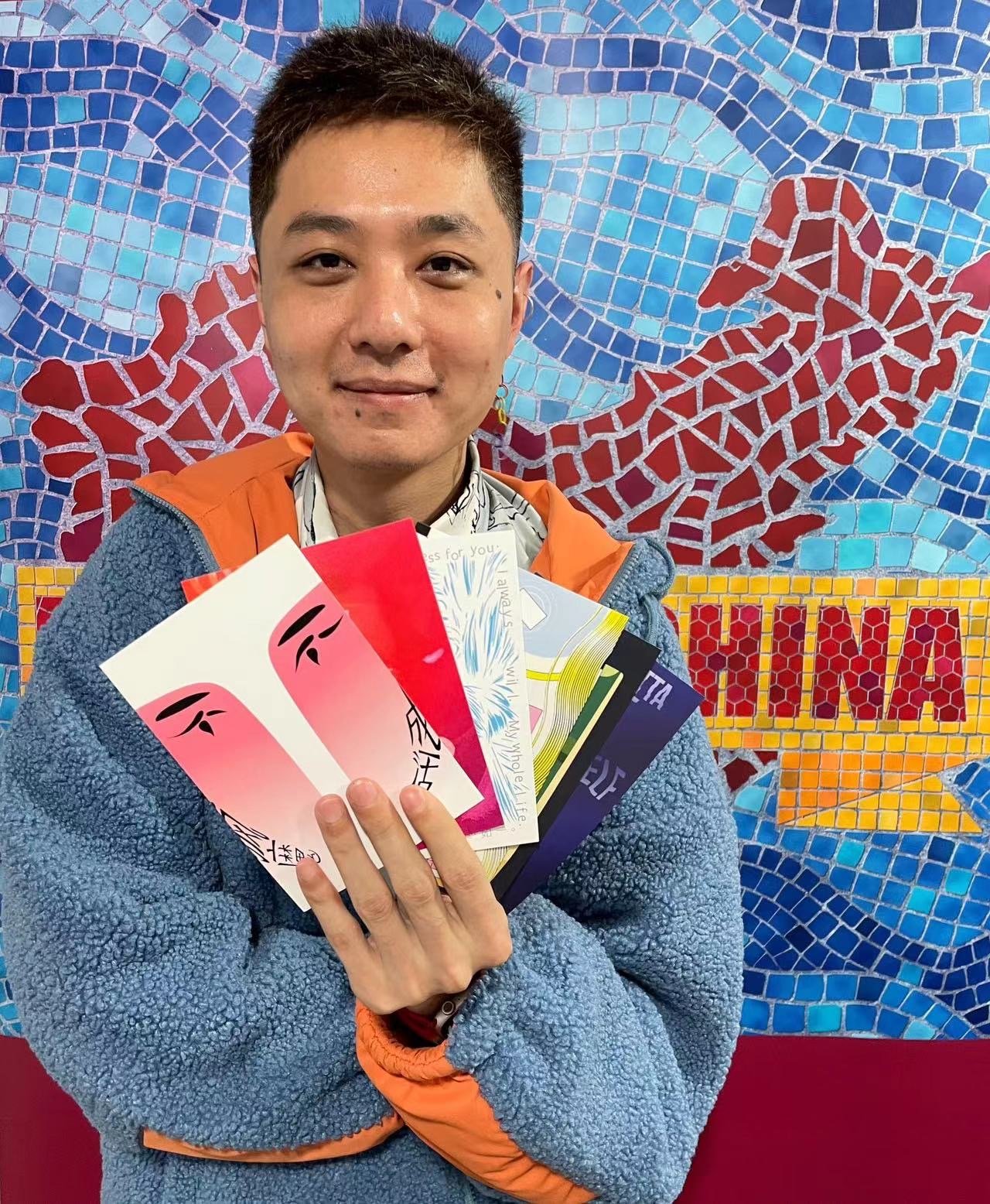
![Xie Xiao: His name is 谢虓 [Xiè Xiāo]’, not 学校 [Xuéxiào] and not '****-show'](https://images.squarespace-cdn.com/content/v1/5d40122274f3720001d9543b/1670167592033-TR503SPCBFY6PFL7Y80V/CN+11447+s03e13+XIE+Xiao+D+General+Episode+Image.JPG)
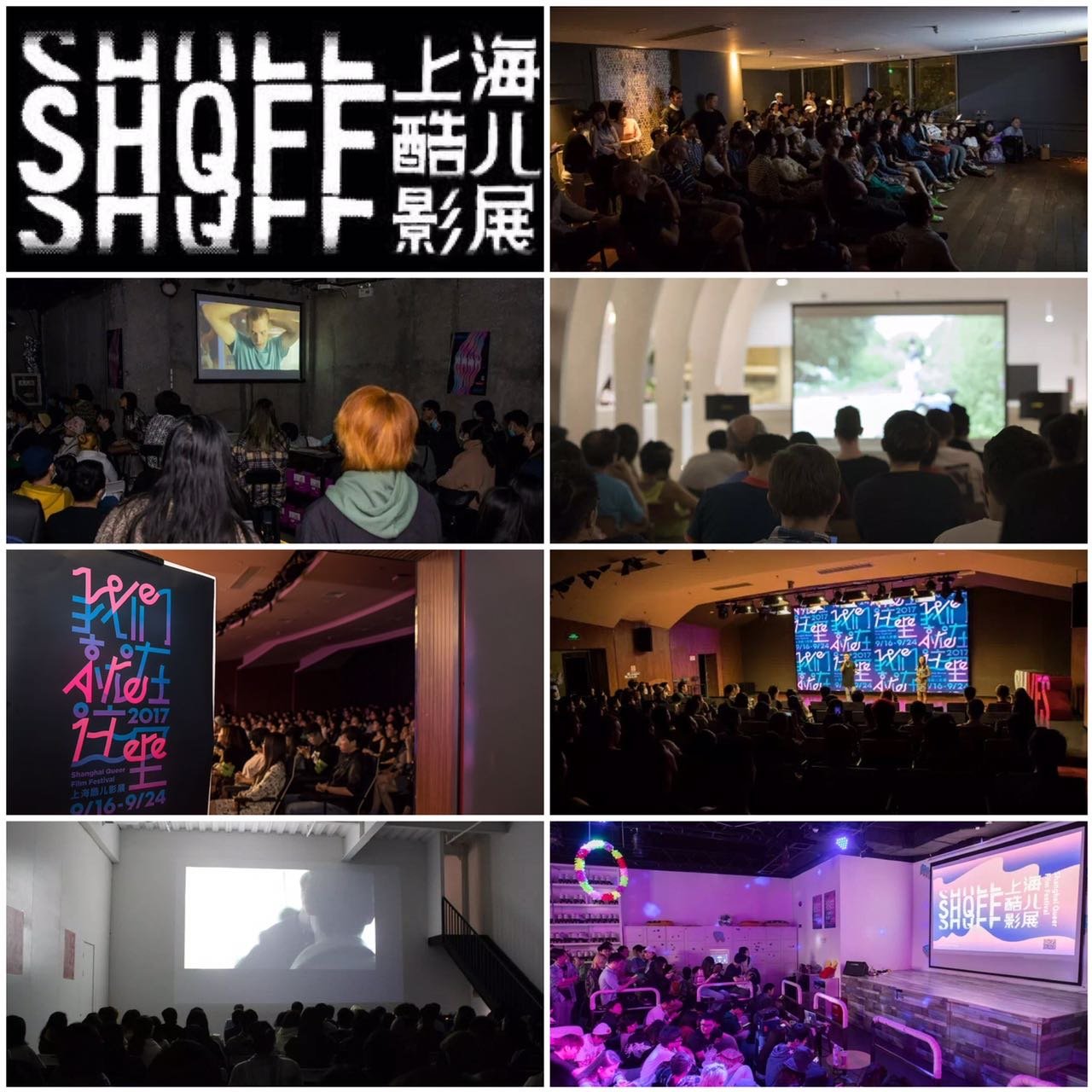
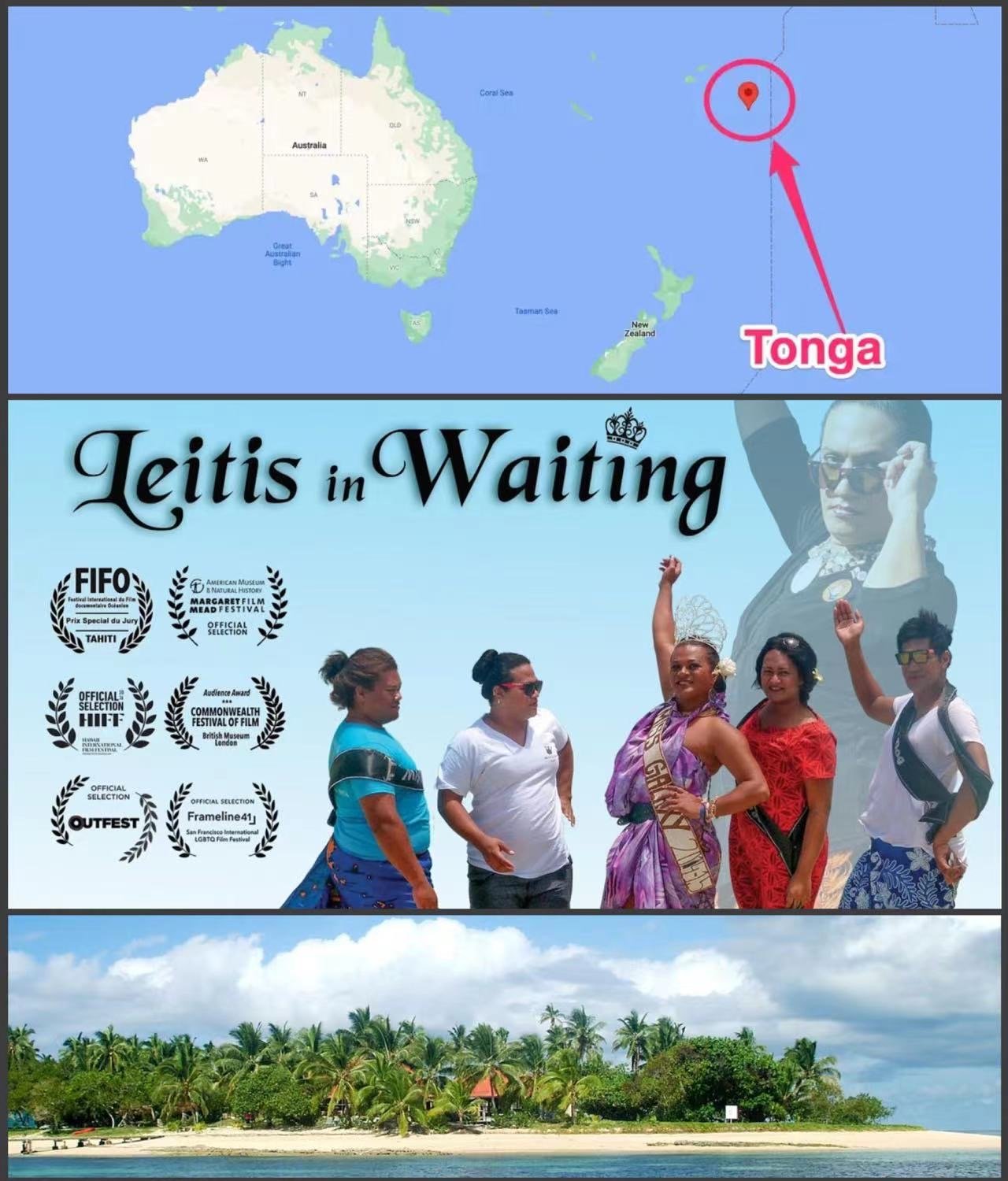
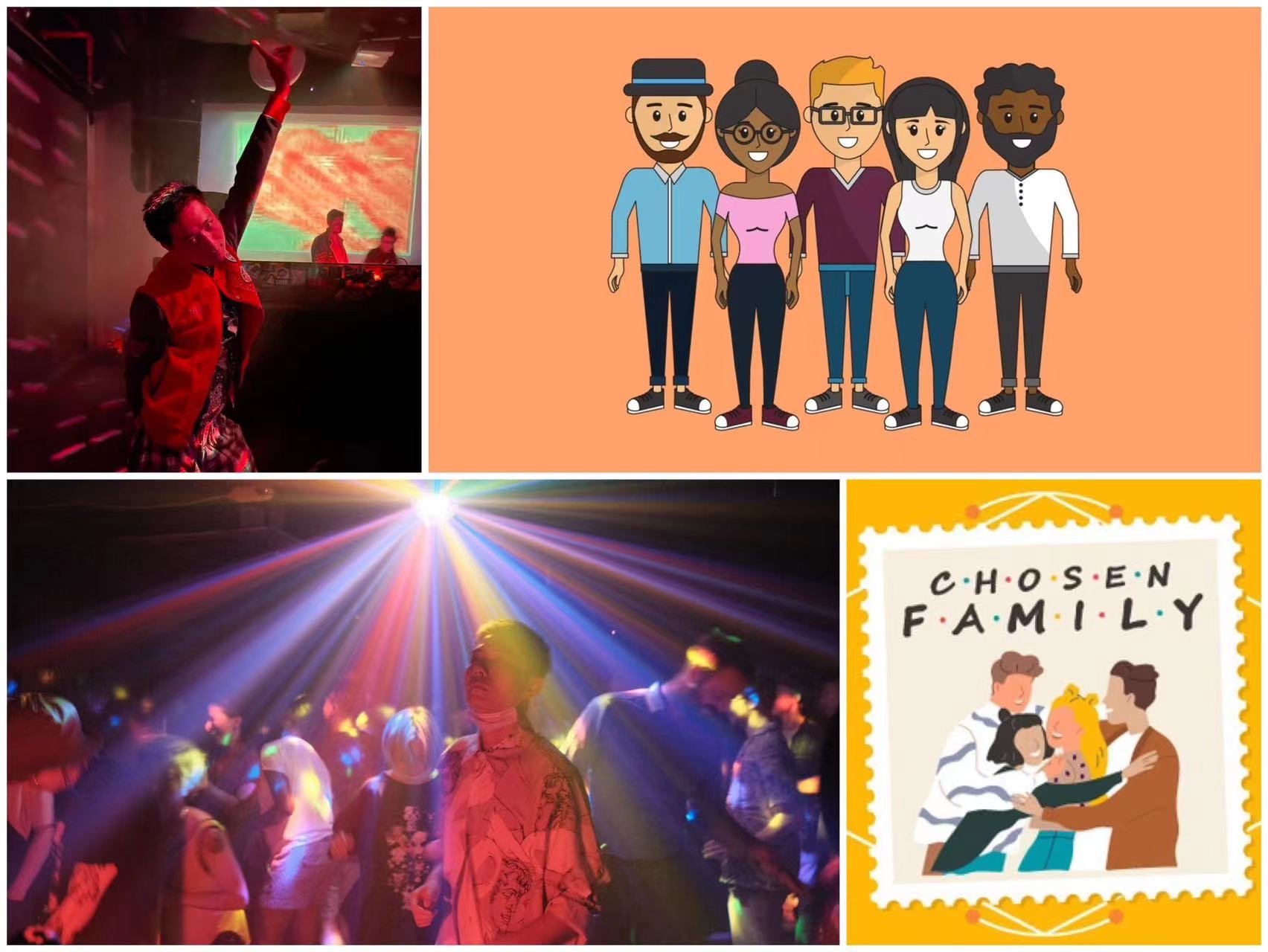

![Xie Xiao: We spend some time talking about his hometown of 重庆 [Chóngqìng].](https://images.squarespace-cdn.com/content/v1/5d40122274f3720001d9543b/1670167596515-MWWQ7UE97PU9WJ4V5M3N/CN+11452+s03e13+XIE+Xiao+D+General+Episode+Image.JPG)
![Xie Xiao: We compare his hometown of 重庆 [Chóngqìng] with other cities in China, as well as Oscar's hometown of London.](https://images.squarespace-cdn.com/content/v1/5d40122274f3720001d9543b/1670167598044-F6CD2SFFA42UAXKIECN9/CN+11453+s03e13+XIE+Xiao+D+General+Episode+Image.JPG)
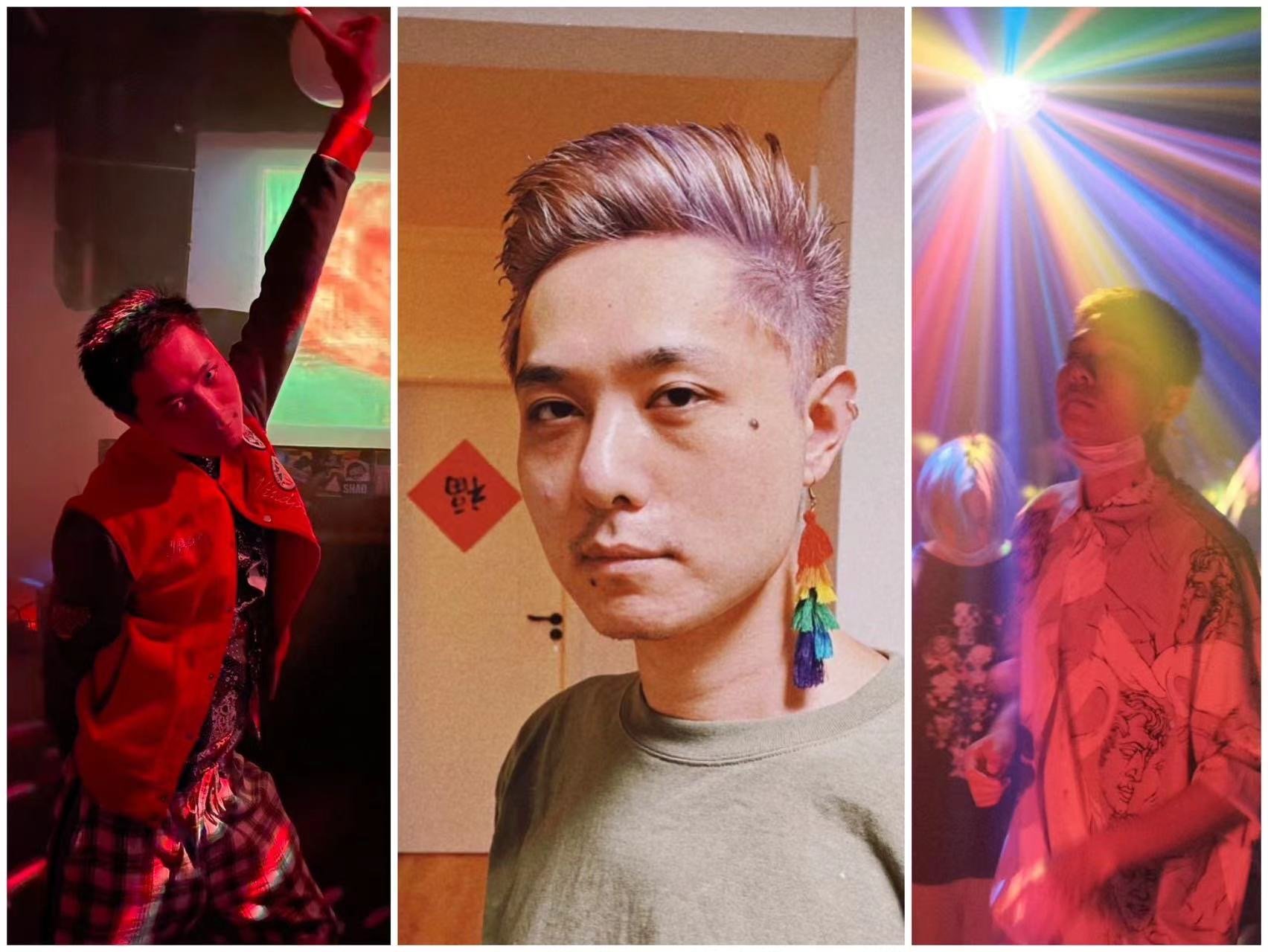
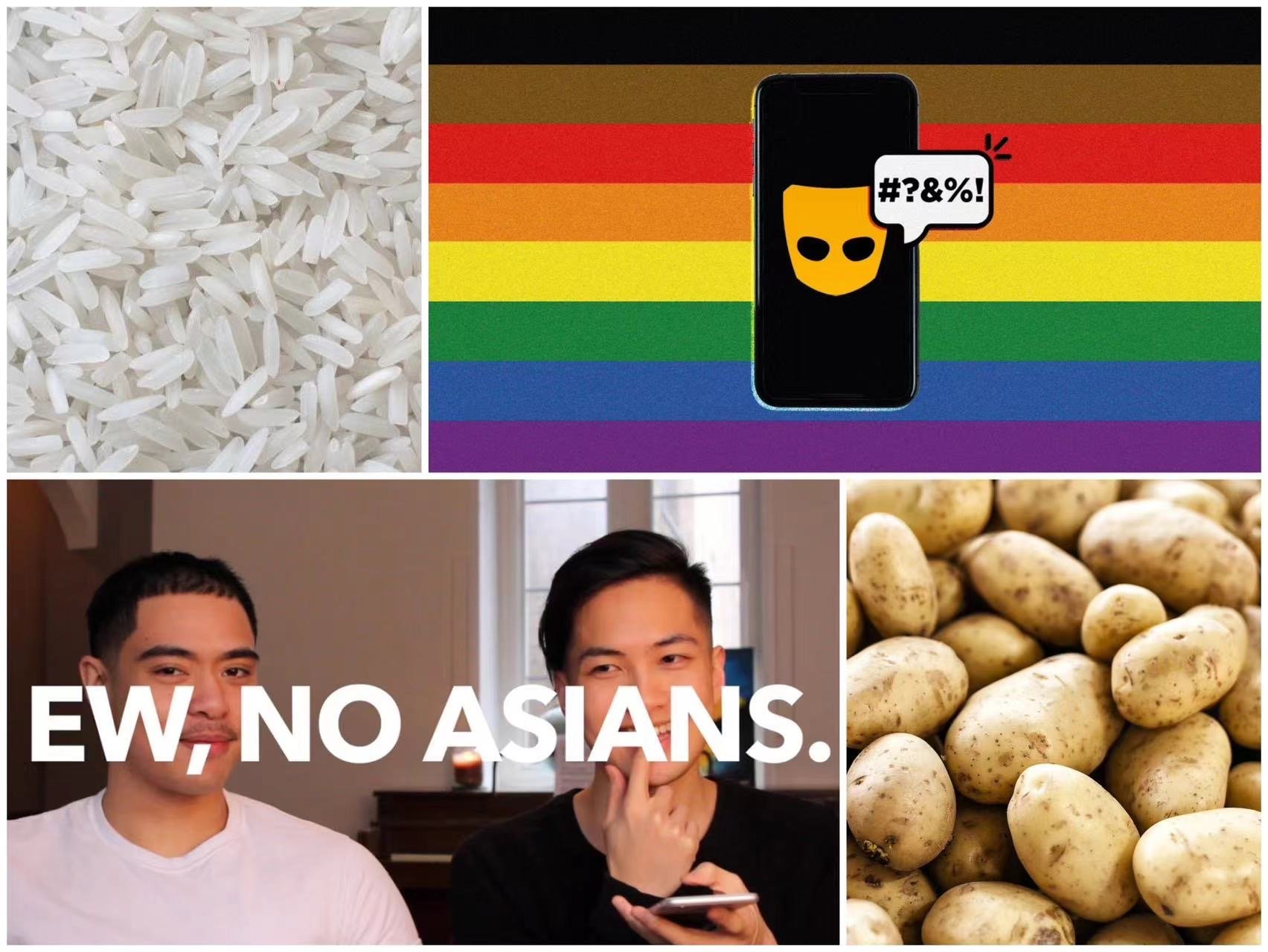
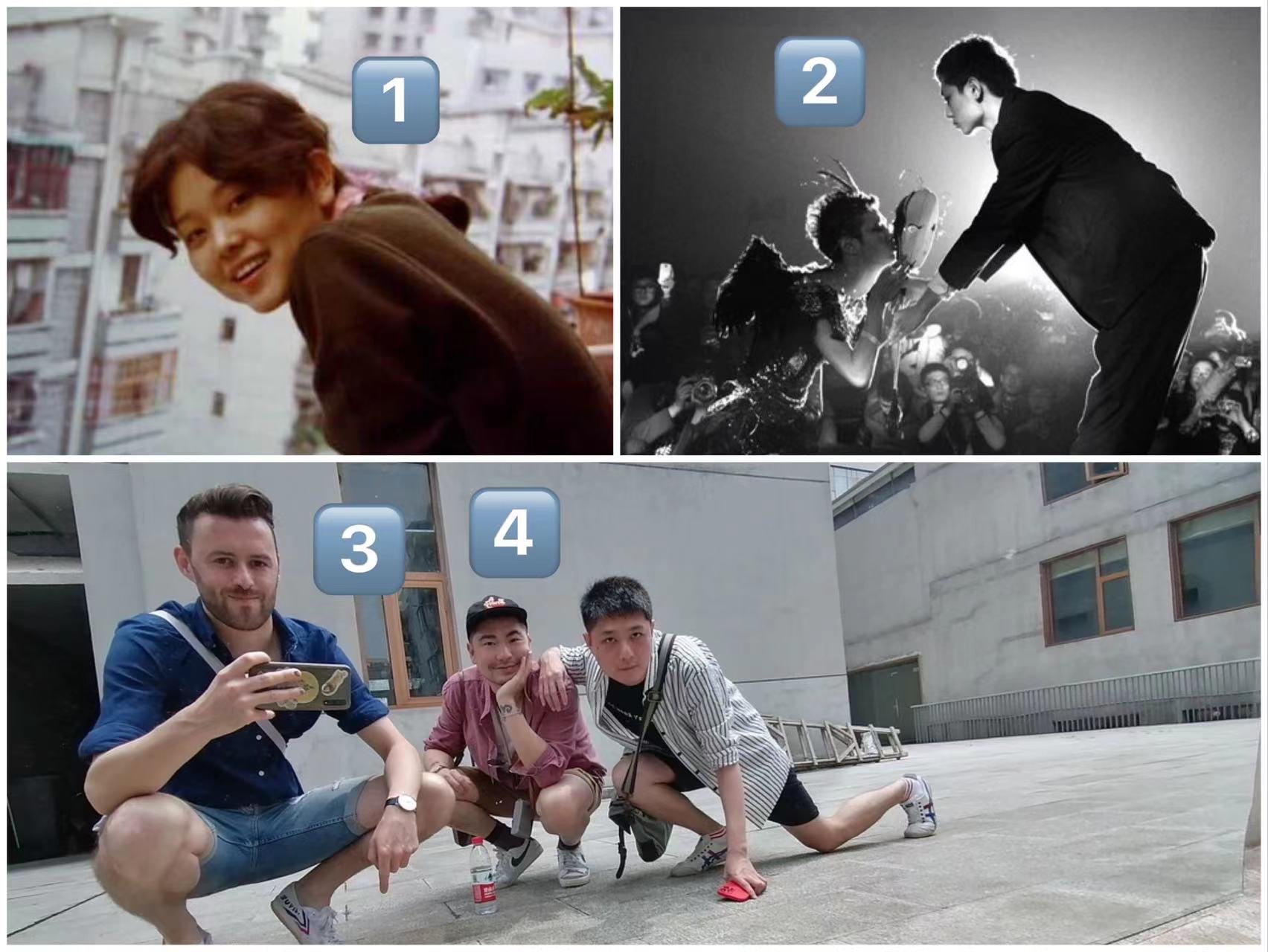
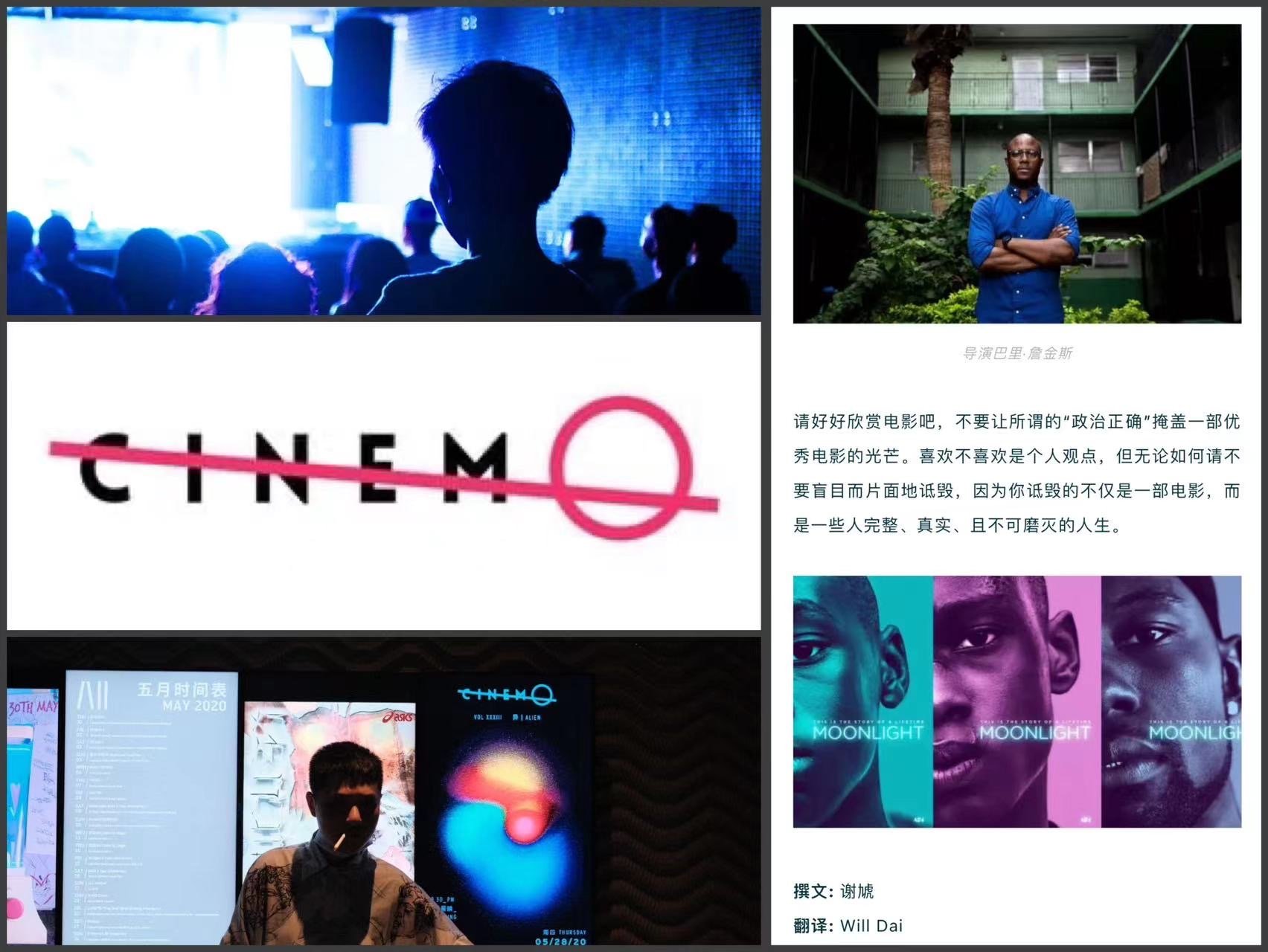
![Xie Xiao's favourite phrase in Chinese: 含蓄 [hánxù], which describes when something has a hidden meaning.](https://images.squarespace-cdn.com/content/v1/5d40122274f3720001d9543b/1670167602049-NUN9LP1GY59RUR95OGXH/CN+11458+s03e13+XIE+Xiao+F+Q02a+Phrase.JPG)
![Xie Xiao's favourite destination in China: Shanghai, partly because it sits on the same Yangtze River as his hometown of 重庆 [Chóngqìng] many miles upstream.](https://images.squarespace-cdn.com/content/v1/5d40122274f3720001d9543b/1670167603423-GLJ4LFLPH08AZAS8SLA8/CN+11459+s03e13+XIE+Xiao+G+Q03a+Destination.JPG)
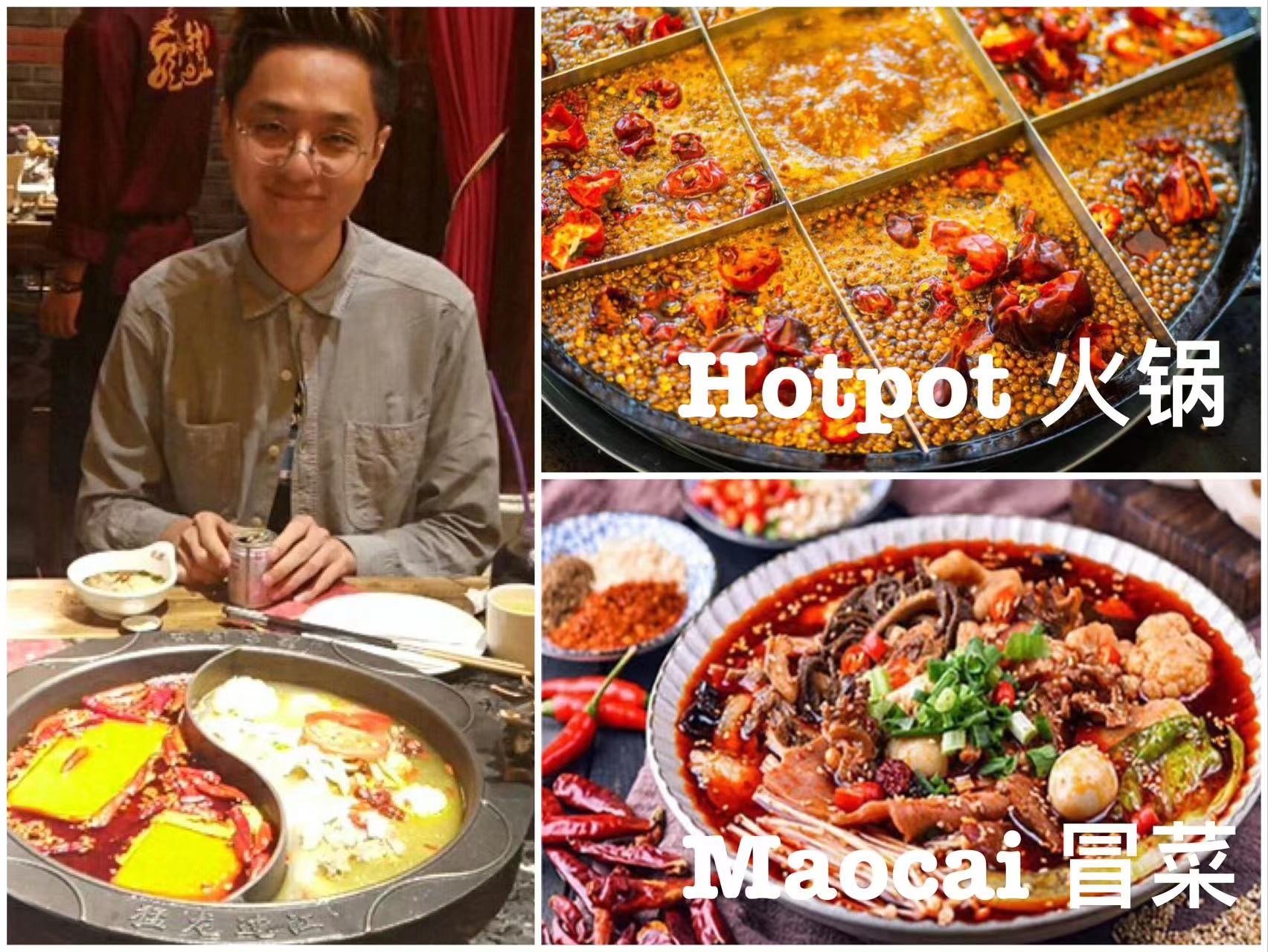

![Xie Xiao's go-to song to sing at KTV: '爱不爱我 [Ài bù ài wǒ]' by 零点乐队 [Língdiǎn Yuèduì]](https://images.squarespace-cdn.com/content/v1/5d40122274f3720001d9543b/1670167605691-TX2XW306I6KPGYUDOXBE/CN+11462+s03e13+XIE+Xiao+L+Q09a+KTV.JPG)
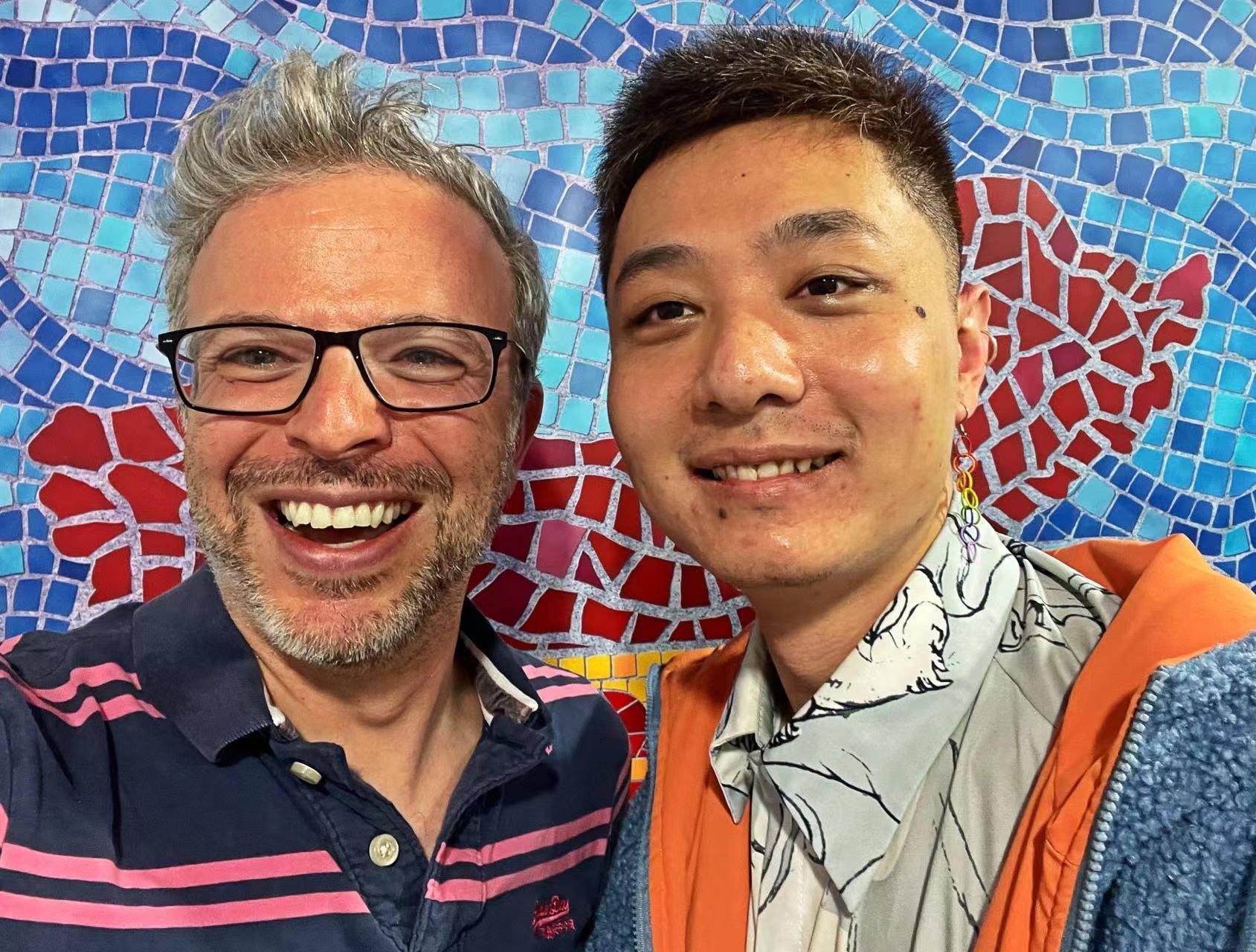
To Listen Here…
Click the ▷ button below:
To Listen/Subscribe Elsewhere…
1) Click the link to this episode on one of these well-known platforms:
2) Or on one of these China-based platforms:
To Read The Transcript…
[Trailer]
XX: I love my family back in 重庆 [Chóngqìng]. And also I have a chosen family here in Shanghai. I have four mothers.
[Intro]
OF: Welcome to Mosaic of China, a podcast about people who are making their mark in China. I’m your host, Oscar Fuchs.
There are two themes in today’s show. The first is location. Three years ago, I would have said that my personal lifestyle was completely location agnostic. I don’t say that so much these days, since I haven’t stepped off the Chinese mainland in all this time. When someone feels ‘dislocated’ that’s not a good thing, but is there also something you can call being ‘over-located’?! I’ve managed to heal myself of this feeling of ‘over-location’ by going to places that remind me of my previous lifestyle, heading to the parts of China that border closely with Thailand, or Myanmar, or Korea, or Tajikistan. It’s not the same as traveling to those places, but at least it’s close. So it’s funny to have discovered a place on the Chinese mainland that surprised me by reminding me so closely of Hong Kong, despite the two cities being many miles apart. If you haven’t already guessed where I’m talking about, you’ll figure it out pretty soon.
The second theme of today’s show is queer identity. Honestly, it’s not a subject we can talk about too explicitly on this show. But I’ve done my best to cover this topic from a few angles. At one point we discuss the reaction in China to the Oscar-winning movie Moonlight, at one point we discuss the queer scene in Shanghai, and at one point we discuss language that is homophobic and even racially prejudiced. The tone of this whole episode is energetic, playful and provocative. But while my guest and I are both having fun, we do so knowing full well that we’re talking about some very serious issues. So with that little trigger warning in effect, let’s start the show.
[Part 1]
OF: Well, thank you very much Xie Xiao. How am I saying your name wrong?
XX: Actually, when you did the podcast with Cocosanti, you both said my name wrong.
OF: Well let's get your name right first.
XX: OK.
OF: Give me the tones as well, so I can try and get that right.
XX: ‘谢 [Xiè]' is fourth tone, ‘虓 [Xiāo]’ is first tone.
OF: OK, ‘谢虓 [Xiè Xiāo]’.
XX: Yeah.
OF: OK.
XX: Some foreigners say this sounds like “*** show”. I quite like that though.
OF: Your life is a **** show.
XX: I mean, kinda. Because my very close friends called me “Diarrhoea Queen”, because I have very poor stomach. I **** a lot.
OF: Wow, we've gone straight to the most personal part of your life. Well, I want to talk about Cocosanti who referred you. But before we do, let's talk about the object that you have prepared…
XX: OK.
OF: … that in some way represents your life in China. So what is it?
XX: You know, I participate in the Shanghai Queer Film Festival. It's a local queer film festival founded in Shanghai. Every year we invite some local artists to do some special postcards. Oops, sorry, I just broke it. So each one of them are very beautiful. They choose one queer film, and make a postcard.
OF: Well, can you leave them out. Because I want to have them on display while we're talking.
XX: OK, sure.
OF: Because a lot of what we're gonna talk about is your work. Why don't we start with that then? So tell me, what is the Shanghai Queer Film Festival?
XX: OK first of all, I participate in several queer groups in Shanghai. The Shanghai Queer Film Festival is just one of them. When I just came to Shanghai, I didn't know anybody. But I wanted to get into a community. So I met some friends. At one dinner, they said they're working with the Queer Film Festival. I didn't know that.
OF: What year was this?
XX: 2016. Because I came to Shanghai in 2016.
OF: Where were you from originally?
XX: 重庆 [Chóngqìng]. It’s the hotpot city.
OF: 重庆 [Chóngqìng]!
XX: Yeah.
OF: Do you know, I've just been to 重庆 [Chóngqìng] for the first time.
XX: Oh really?
OF: Yes. We'll come back to it.
XX: OK. So they said they’re working with the Shanghai Queer Film Festival. And I said “Just put me in! Just put me in! I want to do anything, I just want to participate in it!”
OF: Nice.
XX: So that's when I joined in, yeah.
OF: OK, so what is your role with the festival?
XX: I manage the content bits.
OF: OK.
XX: I write articles, and take charge of the social media content.
OF: Do you also have a hand in choosing which films are selected?
XX: No, that’s other groups.
OF: OK.
XX: Like the short film group, and the feature film group.
OF: What films have you shown in the past?
XX: Actually, I think everyone can just check our official WeChat group: Shanghai Queer Film Festival. Every year is not very easy to do a queer film festival in Shanghai. So every time when we successfully hold an event, we consider it a huge success. That's meaningful. Not the films we’re screening, but the event itself.
OF: That's right.
XX: Yeah.
OF: Well, I'm going to to ask you just for an example of one of the films that you would have seen. Did it have some kind of impact on you?
XX: The film is called ‘Leitis in Waiting’.
OF: Ladies?
XX: Leitis. Leitis is a word in Tonga - Tonga is a Pacific nation - And ‘Leitis’ means trans women. So ‘Leitis in Waiting’ is a documentary which shows trans women in Tonga, how they're living. It's really interesting, there’s a huge trans community in a Pacific island nation.
OF: Yeah.
XX: Actually, they have a very big trans culture in Tonga. But when the British people came… I'm sorry.
OF: Oh dear.
XX: Yeah, suddenly the people just don't like them anymore.
OF: Yes. And you make an interesting point about the British Empire, because a lot of the laws which are now seen by the West as anti-LGBTQ+ came from that era, right?
XX: Never banned before.
OF: Exactly.
XX: Yeah.
OF: So now we in the West look down on these people saying “Hey, get with the programme.” But actually, they don't realise that it's because of the West that they have these laws.
XX: Yeah. Because in most of the countries, they actually had rights. The culture accepted them before.
OF: Yeah. Well, let's talk about China then. Because you’re holding this festival in Shanghai. And as you say, it's not easy. What do you mean by that?
XX: All the events must be free.
OF: Mm-hm.
XX: We can’t charge money.
OF: Yes.
XX: And it's very hard to find a place to show the films. We can't just show them in the cinema. So we need to raise money. And we need to find a place to screen. And we need to organise dozens of people. We're all volunteers this group.
OF: Right.
XX: Nobody gets any money. We're just doing it for love.
OF: Yes. And that reminds me of an episode I did in Season 01 of this show, which was with a playwright called Nick Yu. And he explained the law, that if you are selling a ticket, that's when you have to get in touch with the content board who helps to pass that film for public viewing, right?
XX: Yeah.
OF: So the fact that you're not selling tickets, that means that you have a bit more freedom in terms of what you can show, correct?
XX: I mean, we can just say like, it's someone's birthday. We're just holding a birthday party.
OF: Yes, yes. Which it is, I mean, it is a private group ultimately, right?
XX: Yeah, yeah, yeah.
OF: And then when you say the venue itself is hard to find, what do you mean by that?
XX: Sometimes, when we reached out to a venue - when we need to explain to the owner that we wanted to show films - they will ask “What kind of films are you showing?” We will explain “Well, there will be gays and lesbians in the films,” some owners will say “No, that's too sensitive.” But luckily, we have some owners who are very willing to help us.
OF: Because it's not about the law. There's no law against it.
XX: It’s very vague.
OF: Yes.
XX: There’s no specific law that says that you can't show queer firms in China. But it's very vague, so nobody knows what to do.
OF: This is it. And that's what this kind of vague law promotes, in terms of content creation, right?
XX: Yeah. But they don't know what we're gonna show. So it's kind of like we fear them; they fear us also. So I'm quite used to it. And I don't think that's much of a problem now.
OF: Yeah. Well this is it right? It becomes so normalised…
XX: Yeah.
OF: … That you sort of work out how to exist within these boundaries.
XX: Yeah.
OF: Well, we talked at the beginning about Cocosanti and I both ruining the way that we said your name. Why don't we listen to that referral from last season, here is…
XX: I just listened to it last night.
[Start of Audio Clip]
C: There is an individual named Xie Xiao. He is one of the heads for CIMEMQ, which is a queer film initiative in Shanghai. I think it'd be really fun to have a conversation with him because he has great stories. Because he also does work with another programme called Queer Talks as well.
[End of Audio Clip]
XX: The first time I met her is when she was on stage. There was a drag competition in Lucca. They had two groups, a professional group and an amateur group. She was actually in the amateur group.
OF: Oh.
XX: But her performance was so good. And I felt “Wow.” That performance, I remember really clearly.
OF: Nice.
XX: Back then she didn't know me, but… Shanghai is very big - it’s a massive city - but also Shanghai is a very small city for queer people. You know, we often go to the same venues, we often go to queer events, you always meet some familiar people. So we saw each other and I said “Hello” and she said “Hello". And then had a talk, and we became friends. That's just how people meet in Shanghai.
OF: It's actually nice when I hear you describe it, because what you're describing is a real community. I think in many cities around the world - especially big cities like Shanghai - we’re losing this community, because a lot of the stuff is happening online, especially when it comes to meeting each other. A lot of stuff now is getting more mainstream. Here, there is still that close community. Do you think that is still the case, five years later?
XX: Right now I am very satisfied, right now I am very happy, that I have such a community, that I have so many venues to visit. And I have so many friends that I can call them my family. You know, I love my original family back in 重庆 [Chóngqìng] - they love me so much, I came out to them, and they except me and they embraced me - and also I have a chosen family here in Shanghai, who I also love. I have four mothers. I always say “It's the same”. You know why? Because I have my origin family, who accept me for who I am, and I know what family looks like. I know what real family - who will love you 100% - looks like. And what I feel about my original family in 重庆 [Chóngqìng] and what I feel about my friends in Shanghai, I feel the same feeling. The feeling is exactly the same. So your chosen family, you can call your family. Because that's real.
OF: And this phrase ‘chosen family’ is quite common in LGBTQ circles, right?
XX: Yes.
OF: Would you say most people who came from other provincial cities to Shanghai, would they have had a different experience to your family in 重庆 [Chóngqìng]?
XX: I’m very lucky.
OF: Right?
X: Yeah but it's very interesting. Many people, when I’ve told my story, they say “Did one of your parents live in a foreign city?”
OF: Right.
XX: … “Or living in America before? Because they sound so open-minded.” But both my parents are born and raised in 重庆 [Chóngqìng], they’re high school mates. They never went abroad. They haven’t even been to Hong Kong/Macau before. They’re just open-minded. My father said “People who cannot accept diversity are the one who are unacceptable.”
OF: How do you explain that?
XX: I know. I know, yeah. I'm just too lucky. My parents always said to me “Well, are you happy?”
OF: Wow. Are you tempted to have them talk with the parents of other queer people in China?
XX: I do want them to. But they don't like big cities, it's so crowded.
OF: Hang on, hang on, stop, stop. 重庆 [Chóngqìng] is the most crowded place I've been to in China!
XX: That's why they don't like big cities. They always run away from 重庆 [Chóngqìng]. Like “Where are you?” “I'm in Tibet.” “Where are you?” “I’m in 新疆 [Xīnjiāng].”
OF: Oh right.
XX: They run marathons.
OF: Yeah!
XX: They biked from 重庆 [Chóngqìng] to Tibet.
OF: I should be interviewing your parents, man. These sound like amazing people. Now is a good excuse me to talk about 重庆 [Chóngqìng] because it's one of those places that is not on most people's radars as foreigners, right? We haven't got the excuse to go there. Of course, we all know about 重庆 [Chóngqìng] hotpot, 重庆 [Chóngqìng] is very famous for hotpot. It's famous for maybe some politicians who used to be in charge. That’s really the only thing that I knew about 重庆 [Chóngqìng] before I went there. In fact, I went there because I was doing a layover between two cities, and I thought “Oh, I haven't been to 重庆 [Chóngqìng] so I might as well go through 重庆 [Chóngqìng] and spend a weekend there.” When I went there, it was like “Wow, I don't know enough about China.” Because it really had its own energy, which I was surprised at. It was like Hong Kong with this Mainland China veneer on top. It was like “Why has it taken me so long to be in 重庆 [Chóngqìng]?”
XX: I'm very surprised too, because even in 成都 [Chéngdū] you can select many foreigners. But in 重庆 [Chóngqìng], no.
OF: No!
XX: Absolutely none. Zero. None.
OF: And it’s millions of people, and I was the only foreigner.
XX: Yeah.
OF: Even in the centre of town.
XX: Do you know that - maybe 20 years ago - they 重庆 [Chóngqìng] ‘Little Hong Kong’? Because of the landscape.
OF: Yes, yes, yes. I'm glad it wasn't just me then, good.
XX: It’s bigger than Hong Kong actually.
OF: Yes.
XX: You know, 重庆 [Chóngqìng] people also walk very fast. And we have so many stairs.
OF: Oh, exactly. I couldn't believe it. I was following a map, I'm going from one place to the other…
XX: Never trust a map when you're in 重庆 [Chóngqìng].
OF: Yes!
XX: You just ask people. People are gonna say "Go up.” “What do you mean ‘Go Up’?”
“Up!”
OF: This is it. When I was following a map, I realised "No, I can't get there. Because there's a massive mountain in between me and that road.”
XX: Yeah, maybe a cliff.
OF: Yes. Which was such a beautiful situation, because Shanghai is so flat.
XX: I know…
OF: It’s so boring, right? Especially when I first came here - this is talking, like, seven years ago - I came from Hong Kong, right? That where I last lived. And then when I came to Shanghai first of all, every corner was the same. I couldn't differentiate one road from the next.
XX: Well, have you ever been to Beijing? That's exactly the same. Because my aunt used to live in Beijing. So when I was a little kid, every summer I would visit Beijing. Every road is so straight. About thirty minutes, never turn.
OF: Yes.
XX: It was such a miracle for me.
OF: I’m the same. I come from London, and that's a place that built out very organically, so all the roads are higgledy-piggledy, they have massive curves. So every time I'm in a very planned city - which is, let's say, most cities in the States for example, they have blocks - I just feel like it's not human enough. We're not supposed to be so logical.
XX: Yeah. We're so weird. Some people ask me “How do you feel when people call you weird sometimes?” I say "Everybody's weird”. Because nobody can fit all the stereotypes, all the principals that any society puts on you. You're not a robot. You’re not a programme. We’re all at least a little bit weird.
OF: We all have our weird stuff, exactly. Let's talk about the way that you talk with your friends. Because this is something which I love. You know, the language that the queer community use between each other.
XX: Oh my god, we create our own slang sometimes. Often, like in Western queer communities, we absorb the negativity.
OF: You own it, right?
XX: We own it.
OF: Yeah.
XX: And we turn that into something positive.
OF: Right. That's very common, right?
XX: It’s very common. And I don't know if I can say that word here: ****. People call you **** because they hate you. But right now we can use that proudly, and say "Yes, I am a ****. So what? You cannot hurt me with your so-called negative words any more.”
OF: Right.
XX: “Because we own that.”
OF: And so what you're saying is, there are equivalent words in Chinese which you now own. But you don't want to say on a podcast, for example.
XX: I can say it. Like, many people will call you “sissy boy: ****”. “We need more masculinity in China, so we don't want boys in China becoming more sissy. We need masculinity.” “Sissy boy” is such a bad word for people. But we own that. So easily. We don't give a ****. I say “If you have a single bit of sissiness in your body - in your system - just show it.” And it's so much easier, just being yourself completely.
OF: Well, but that's why I'm really impressed with people like you. Because I think you’re, what, then years younger than me? How old are you now?
XX: 29.
OF: Yeah, you're 15 years younger than me. And you've come to this conclusion way younger than I did.
XX: Because I tried also… When I was in high school maybe, I tried to become ’normal’. And I failed. I'm very bad at acting.
OF: You have no choice.
XX: I have no choice but to accept myself. And I feel like “Well, you just don't know what kind of potential you have in your body. Don’t rush to come to a conclusion about yourself, or try to define yourself. Every definition is a limitation.” Don't try to define ‘queerness’. That word doesn’t need any definition.
OF: Do you say it in Chinese?
XX: Yeah, 酷儿 [kù’er].
OF: 酷儿 [Kù’er].
XX: Yeah 酷儿 [kù’er], it sounds cute.
OF: Yeah.
XX: It just sounds cute.
OF: Yeah. So we've talked about how you feel accepted in Shanghai. Like, what is the status of LGBTQ+ people in Shanghai - in China - right now.
XX: Every city is different. Every province is different.
OF: Right.
XX: And even in one city, I know people who wouldn't dare to come out to anybody, they’re living in Shanghai too. So different people think in different ways. Like in some people's minds, gay people and lesbian people are separated. Also, like there is a Chinese queer people group, and one for foreigners.
OF: Yeah.
XX: I just don't know why people are so interested in putting people in different kinds of boxes. Sometimes people enjoy that, and I just think that's ridiculous. Yes, there is racism in China. And yes, there is xenophobia in China. And yes, within the queer community, also.
OF: Right.
XX: That doesn't mean that this queer community in China is very depressed. That depends on what kind of community you want to join, and what kind of community you want to be.
OF: Mmm. You know what, you're making me think about something which if you're in the community, you've heard this. But maybe there are people listening who have never heard this. Foreigners versus Chinese people within the queer community, there are a few phrases that I've heard.
XX: OK.
OF: It’s about ‘rice’.
XX: ‘Rice queen’?
OF: Yes.
XX: It means basically a foreigner who is fond of East Asian people.
OF: Yep. What's the equivalent for the other way around?
XX: I don't know. What… potato?
OF: Potato.
XX: Actually, this is the first time I’ve heard that.
OF: You’ve never heard of ‘potato queen’?
XX: No.
OF: That’s what you would call an East Asian who is looking for a white guy.
XX: Oh wow.
OF: A ‘potato queen’.
XX: We call that differently in China: ‘西餐妹 [xīcān mèi]’. ‘西餐 [xīcān]’ means ‘western food.’
OF: Ah yeah, cos it's about food, it is about food. OK, so what do you call it when there are two East Asians who are attracted to each other? Do you have a word for that, because we do in English?
XX: Oh really? Two East Asian like…. No, we don't have that.
OF: Sticky rice.
XX: Wow.
OF: It’s terrible. This is it. This is the kind of racist language that exists within the queer community.
XX: Yes.
OF: If you can use your logic here. What do you think it…
XX: Mashed potato?
OF: You got it! We’re laughing about it, it’s wrong, right?
XX: It's wrong. And we can talk about it. Because there is an issue, that’s why we need to talk about it. But we need to understand why this word exists, why it's bad, and what can we do to improve it? Should we just cancel it? Or use it again, but in a different way?
OF: Yeah.
XX: They’re just words.
OF: Yeah.
XX: It's how we define them, how we use them.
OF: Yeah. You know, what I know from people's profiles on dating apps, they would specifically say things like ‘No Asians,’ you know?
XX: Oh there are so many examples, I know.
OF: Right? It's really prevalent. That we can be in a community which is oppressed in some ways, and yet we can still - within our community - oppress others.
XX: Yes, I find that very interesting. You know, every dating app in China, there will also be people who say ‘No foreigners’ or ‘No Asians’.
OF: You see?
XX: And I feel like “Hello?" We desperately wanted to let the whole world treat us as human beings, but we treat ourselves like meat and vegetables at the market. That's ridiculous.
OF: Yeah. There is some kind of deep-rooted self-loathing, self-hatred.
XX: Yes. They’re like traitors of being queer. Is that really who you are? If you are comfortable, I praise you. But if you're not, that means you're not happy.
OF: Yeah.
XX: Yeah.
OF: The way I actually accept the word ‘queer' is I think about it in terms of, right, procreation.
XX: Procreation?
OF: ‘Procreation’ means having a baby.
XX: OK.
OF: And that's ‘normal’, right?
XX: OF.
OF: Anything which doesn't lead to procreation - anything which is not that - you could call ‘queer.’ So what I mean by that is, if there is a heteronormative couple, and they're not doing anything which is going to lead to a baby being born, that's queer!
XX: Yeah.
OF: What you find out when you define it that way is that everybody is queer. Everybody has done things in the privacy of their bedroom…
XX: Sure.
OF: … Which doesn't lead to creating babies. Everyone.
XX: Yeah, my expression is a little bit different, but I also believe everybody is queer. I mean, if you ever have any sexual fantasy, that means you're queer. If you don't have any sexual fantasy, that means you're asexual, that’s also queer.
OF: There you go.
XX: So.
OF: End of story, we're all defined under that one umbrella.
XX: Yeah.
OF: I guess the issue right now in China is representation. Where you and I can have this conversation on this English-speaking podcast. If we were doing a TV show in China, we couldn't talk this openly, right?
XX: I don’t know. Maybe not? Maybe? I'm not sure. You know, like, the law is very vague. We don't know.
OF: Well, you certainly don't see it right now.
XX: No.
OF: And you certainly see the opposite. You certainly see now, the messaging coming out about “it's a shrinking population”, right? So there's a demographical issue, that you have to make more children in China. But then how, in that case, do you think you can create more people who are like your parents, who are understanding and accepting?
XX: First of all, we just talk. We just share our minds, we share our thoughts. Every time when we do a talk, I can see that something is happening. Even if it's a very tiny little bit, every talk matters. And also with CINEMQ, people often say “Why do you choose to use screening films as a tool to extend your message” or something. Matthew thinks - he’s one of the co-founders of CINEMQ - and also everybody else thinks the same way, because movies are fun. People like watching movies. And what we're showing are queer movies, which are more interesting. That's it. It's very simple. Just have fun.
OF: Yeah.
XX: Girls just wanna have fun.
OF: You mention Matthew. He is someone who has been behind CINEMQ…
XX: She is like my third or fourth mother.
OF: Matthew Baren?
XX: Yes.
OF: So let's talk about that. Tell me about your four mothers.
XX: My first mother is my biological mother in 重庆 [Chóngqìng]. I love her so much. We're like sisters, so each time we just hang out in the street, we go shopping, we drink bubble tea, and we talk about men. That's my first mom. My second mom is my college friend. She’s so funny. She's the one who actually told me “You know, being a slut is not a bad thing. It’s how you own your body. But make sure it's safe.”
OF: Yeah, well this is a whole feminist aspect we haven't even talked about. But keep going.
XX: Yeah. The third or fourth mother is Matthew Baren and Will Dai.
OF: Ah, they’re partners, right?
XX: Yeah. I'm gonna tell you the story about how I met them. Moonlight won the Oscar.
OF: Ah yes.
XX: And I got very angry because there are so many Chinese reviews which were so bad. People said “I just don't like black people.”
OF: Oh.
XX: People said “This film only won the Oscar because of political correctness.” Or “The PC issue has gone too far in Western countries.” Blah, blah, blah, blah, blah. There were so many of them. Of course, there were so many people who very much liked this film, including me, and including many other people. Moonlight was kinda like a bomb which exploded all the issues out onto the surface. And so I typed in a WeChat group saying "I want to write an article to discuss that.” And so Matthew replied to me in that group, and said "You need to write that article.” So I wrote it, and I sent it to them, they got it published. And we never met before. And there was one time one night, I was sitting outside of a bar. And I just saw Matthew and Will, passing by. And I just approached, saying “Hello. You don't know me, but I know you." And that's the first time I met them.
OF: And that's how you got into CINEMQ.
XX: That night changed everything.
OF: And that's why we're here today. Xie Xiao, thank you very much. Let's move on to Part 2.
XX: OK.
[Part 2]
OF: Alright, let’s jump straight in. Question 1 from Shanghai Daily: What is your favourite China-related fact?
XX: The thing that most impressed me is how China changes so fast. Every year is different. I don't even recognise where I grew up. The building is gone. Everything is gone. The road is gone. The mountains are gone!
OF: Yes.
XX: Every time when I go back to 重庆 [Chóngqìng], I know that she's always beautiful, and she's always fierce. But is that a city I know? I just hope that the characteristics don't change.
OF: Yeah. What is one physical representation of 重庆 [Chóngqìng]? Is there like something which makes you think "Ah, I'm back in 重庆 [Chóngqìng]” when you see it?
XX: Hotpot. When I smell that, “***, I’m home.”
OF: Mmm. Yeah, this is the thing, because I was in 重庆 [Chóngqìng] but I was there by myself. And it's actually quite hard to eat hotpot by yourself.
XX: I know. Yes, yes. It's not just for one person.
OF: Yeah, I still haven't eaten hotpot in 重庆 [Chóngqìng].
XX: Aw.
OF: So I have to go back with a group.
XX: You have to go back with a group, and with a group where every one of them can eat spicy food.
OF: Yeah. Next question, which comes from Rosetta Stone: Do you have a favourite word or phrase in Chinese?
XX: I love Chinese. You just have to learn the logic, you can create your own words, you know. But I do have one word that I very much like. It's 含蓄 [hánxù], I don't even know how to translate it.
OF: 含蓄 [Hánxù].
XX: It’s kinda like ‘ambiguous’, ‘vague’, ‘soft', something like that. Sometimes you can use it like “The way of your speaking is very 含蓄 [hánxù].” And that means "I can understand you, but it's not very clear.” You know, like an iceberg. You only speak the level one, but the remaining nine levels, I have to understand, I have to interpret it.
OF: I hear exactly what you mean. It's actually a really interesting representation of the language.
XX: Yeah.
OF: Because I think so much Chinese has got this 含蓄 [hánxù], right?
XX: Yeah, yeah. It's just like “Guess what I'm talking about?”
OF: Yeah. OK next question which comes from naked Retreats: What’s your favourite destination within China?
XX: So far, Shanghai.
OF: Shanghai.
XX: I'm very glad I chose to come to Shanghai five years ago. Somehow I just chose Shanghai because maybe Beijing’s too ‘north’. Shanghai is more familiar. And it's also like, all the people who live by the Yangtze River will feel exactly the same feeling. Like, we feel that river means so much.
OF: Because that's the river that flows through 重庆 [Chóngqìng], right?
XX: Flows through 重庆 [Chóngqìng], 武汉 [Wǔhàn], 南京 [Nánjīng] and Shanghai. So every time when I visit a city that has the Yangtze River running through it, I feel like “Oh, I love this city” at first sight. Just because the same water feeds us.
OF: That's so nice that you can look at the river here in Shanghai, and say “That's been through my hometown.”
XX: Yeah, well we also have a very vicious version. Like Shanghainese people are always drinking our ****. Because 重庆 [Chóngqìng] very, like, upper…
OF: You’re upstream.
XX: Yeah, upstream. Like, Shanghai is the end of it. So… I’m sorry.
OF: Oh that’s so funny.
XX: But I live here now. I drink my own ****.
OF: That's a whole different podcast.
XX: So sorry.
OF: Oh brilliant. If you left China, what would you miss the most, and what would you miss the least?
XX: Oh…
OF: Because you've never lived overseas, right?
XX: Never.
OF: No.
XX: I can only imagine.
OF: Go on then.
XX: I would definitely miss hotpot the most.
OF: I knew you'd say that, you’re so predictable.
XX: That’s because all other people would say exactly the same.
OF: You’re a conformist person?
XX: I mean, my veins run with hotpot. It's just my soul.
OF: You can't help it. What would you miss the least, if you left?
XX: I don't know. I don't know! Oh my god, I feel like I'm such a terrible student. I'm so sorry, teacher.
OF: This is maybe what you were talking before about acceptance. You have to accept yourself. Living in China is about accepting the good and bad, right?
XX: Yeah.
OF: There you go, I've made it into a clever answer. Next question, is there anything that still surprises you about life in China?
XX: 外卖 [Wàimài].
OF: Oh 外卖 [wàimài], as in, ordering food online?
XX: Yeah. I just can't believe I can just order food at 3am. It still surprises me, even though I'm a Chinese person.
OF: And can I guess what kind of food you order on 外卖 [Wàimài]?
XX: You can’t just order a formal hotpot. But you can order 冒菜 [màocài] which is kinda like the hotpot for just one person. That's what I order the most.
OF: Of course.
XX: Of course.
OF: Can you get something which you would say is authentically 重庆 [Chóngqìng] hotpot in Shanghai?
XX: No.
OF: No, right?
XX: I’m sorry Shanghai, no. But I forgive Shanghai for that. Because nobody can just do it like 重庆 [Chóngqìng] people do.
OF: There you go. This is all one big advert for 重庆 [Chóngqìng] after all. Next question, which comes from SmartShanghai: Where is your favourite place to go out, to eat or drink or just hang out?
XX: Elevator. It’s near 徐家汇 [Xújiāhuì] it’s 南丹东 [Nándān dōng] Road. It's an underground bar. They do techno music, and they hold queer parties. Parties where you can always embrace your gender expression. If you dress up in drag, you can get in for free.
OF: Aha. And have you been in drag yourself?
XX: Not yet, but…
OF: Not yet?
XX: I'm so sorry, not yet. But many people want to do it for me. Because I never know how to do makeup.
OF: But they can do it for you.
XX: They can do it for me.
OF: Between this recording and when it gets released, there’s probably a few months.
XX: OK.
OF: So my challenge to you is, by the time this episode is released, you have to have had one evening out in drag. Promise?
XX: OK.
OF: Alright, next question. What is the best or worst purchase you've made in China?
XX: Well, I love Apple products. So the recent Apple product I bought is the watch I'm wearing.
OF: Oh look.
XX: So yes.
OF: Nice. The one company that does not need to have advertising on this podcast.
XX: Yeah, I'm sorry but I'm such an Apple whore.
OF: Next question. What is your favourite WeChat sticker? OK, send it to me now.
XX: There's a lady doing a very funny gesture. Kind of like, use her hands as a curtain to reveal herself. Like “Huh” “Huh" “Hello.” I love people being confident, even though people don't think they have the guts to be confident.
OF: Yeah!
XX: Yeah.
OF: Nice. What is your go-to song to sing at KTV?
XX: Well, I love KTV, so…
OF: Thank you. Somebody who is young, who loves KTV… I appreciate that.
XX: I recently love a very old song in China, it’s called '爱不爱我 [Ài bù ài wǒ - Love me or not]’ It’s by a band called 零点乐队 [Língdiǎn Yuèduì]. I just like to sing this song because you can just roar. “你到底爱不爱我?[Nǐ dàodǐ ài bù ài wǒ?]”
OF: Yeah. And I like how it's like “Just tell me, yes or no”, right? It's that kind of feeling.
XX: Like “Do you love me or not?”
OF: OK, you and I have to go out. And finally from JustPod, which is the studio we are in today: What or who is your biggest source of inspiration in China?
XX: First of all: me, myself and I. Of course. Also, all the queer people. There are so many of us. We don't know each other but it’s like roots underground. We connect to each other somehow, through experience, through culture, through everything.
OF: Yeah.
XX: You can say, like “I feel you.”
OF: Yeah. There you go, everyone. Feel the love, guys. Xie Xiao, thank you so much.
XX: Thank you, thank you.
OF: And before you leave, who is the person who you would recommend that I interview in the next season of Mosaic of China?
XX: Lilian Shen, her Chinese name is 沈乐琦 [Shěn Lèqí]. She grew up in multiple countries: in Singapore, Shanghai, UK and US. And she has done so many feminist events and organisations in Shanghai.
OF: Mmm. This is long overdue, to talk to somebody who can give the feminist story in China. So I can't wait to talk with Lilian.
XX: Yeah, I can say that that issue is very complicated, and she's the right person to talk with.
OF: Great. And if there was one question you would ask Lilian, what question would you ask her?
XX: Where are you? I haven't met you for ages.
OF: Thank you again.
XX: Thank you, Oscar.
[Outro]
OF: So I was looking down my list of all the guests we’ve had on Mosaic of China so far, and I think Xie Xiao is the 14th LGBTQ+ person we’ve had on the show. And that’s just to my knowledge, there’s probably more than that. Sometimes it’s good to talk about it, sometimes it’s fine to let it be 含蓄 [hánxù]. Just like we don’t need to discuss each guest’s favourite breakfast, we also don’t need to discuss their sexual preferences or gender expression. It’s all just part of the Mosaic.
As always, there’s more content in the PREMIUM version of the podcast. Head to mosaicofchina.com for details on how to subscribe, and here are some clips from today’s show:
[Clip 1]
XX: I appreciate you, I understand you, I love you. But I don't know how to define the terms you just said.
[Clip 2]
XX: My cousin is the only grandchild on her side. And we both decided we won't have any children.
OF: Oh right!
[Clip 3]
XX: They think “But in my neighbourhood, homosexuality is such a taboo.” They are afraid to come out to you.”
[Clip 4]
OF: They keep the rules vague on purpose, so that we never quite know where the line is.
[Clip 5]
XX: I know there are so many queer people in China who have a very hard life. I know their stories, I heard them.
[Clip 6]
OF: “Are you a comrade?” The answer is..?
XX: Yes. Both. Yes.
OF: Both, exactly.
[Clip 7]
XX: It doesn't matter if your family except you or not. But it does matter if you accept you.
[Clip 8]
XX: When I visited Japan, I felt like sometimes they were like more Chinese than the Chinese.
OF: Yep.
[Clip 9]
OF: Do you feel that pressure externally still?
XX: Never.
[Clip 10]
XX: So many people, they don't understand it at all!
OF: Right.
XX: I wanted to know why.
[Clip 11]
XX: A, B, C, D, they all sound right, but they all sound wrong. Can I choose all of them?
[End of Audio Clips]
Mosaic of China is me, Oscar Fuchs, with artwork by Denny Newell. As always there are lots of images alongside today’s show on the website or on social media, including Xie Xiao’s favourite WeChat sticker, photos of his families - both biological and chosen - and many more. What you won’t find there is any photos of him in drag, because he’s still leaving that to the professionals. Speaking of which, you’re about to hear a quick catch-up with the person who referred Xie Xiao to the Mosaic, Cocosanti from Season 02 Episode 05. And there’s also a catch-up with the workplace diversity supporter working for SAP, Sebastien Denes from Season 01 Episode 11. Please enjoy them, please listen to their original episodes if you haven’t already done so, and we’ll be back again with another new guest next week.
[Catch-Up Interview 1]
OF: Coco!
C: Hi!
OF: Great to see you. 说曹操 [Shuō Cáocāo], and here you are. Good to see you, man.
C: Good to see you too. How was your..? I don't know what to call it.
OF: Forced holiday?
C: Yeah.
OF: I've put on a few pounds. But I don't mind being in front of you, because you are very body positive.
C: I am.
OF: So I'm letting it all hang out.
C: You should let it all hang out. It's funny, the previous lockdown I gained so much weight because I was just like “Nom nom nom nom.” But this lockdown, I was just so aware of myself and I just knew how to control myself.
OF: Oh, OK. You’ve obviously grown as a person. I think I'm regressing, myself.
C: No, it's fine. Everyone needs to experience it at least once. If you didn't do it the last lockdown, you had to have done it this lockdown.
OF: I suppose so. How is Kevin doing?
C: Oh, Kevin is wonderful. He played an eggplant in my previous show.
OF: Very good.
C: Yeah.
OF: I’m not going to mention what Kevin is. If you haven't heard Cocosanti’s original episode, it's up to you to go back and listen to it. All will be revealed.
C: Yeah, it is something special.
OF: So where are you heading towards?
C: Gosh, I am pushing myself a lot to keep creating as much as possible. So my friend and I are starting a podcast.
OF: Yes!
C: Which is great. We're starting a Disney podcast, ‘Ur Bear Necessities', where we just kind of get drunk and talk about Disney movies. It sounds really basic because it probably is. But it's like, first we're gonna start with our Disney Princess films, and then we're gonna go into talking animals, and then Pixar, and then…
OF: You've planned it all out.
C: Oh everything is planned out. You know, I love planning. After the last quarantine I met with a therapist and a counsellor and I was diagnosed with ADHD, which was a mind-blowing experience for me. Because I have ADHD-I - which is ‘ADHD-Internal’ - which means that everything that I focus on, I hyper-focus on. So something like a podcast or making a video takes a lot of work because I am hyper-focusing on the smallest detail. And that's what concerns me about online content. For me, my perfectionism starts taking over. Which is why I prefer live performances, because those little mistakes become not only part of the performance, but they can become…
OF: The best part.
C: Yeah. It really is, it just… I don't have to beat myself up over making those small imperfections, like “Oh my god, the sound here doesn't sound right. This clip needs to match up perfectly. Is he turning this way? Is he turning left?” It's crazy. I don't know how Kim Kardashian does it.
OF: So how are you going to stop yourself from doing that in your podcast?
C: Oh gosh. Erm. I don't know. I haven't taken any medication to control it, so…
OF: So what tools do you have then?
C: Internal mental work.
OF: Yeah.
C: Which is just repeating to myself “It's good enough.”
OF: Yes.
C: So like, if I'm organising magazines on my table, I won't have to alphabetise them. And… it's an experience.
OF: Yes. You’re giving me this cheeky I-can’t-believe-I’m-saying-this-out-loud laugh. I'm laughing because it's so familiar to me. Whenever I see anything about ADHD, I do wonder if I have an undiagnosed version of it.
C: Yeah, I highly recommend to get tested for ADHD. Because when I found out I was diagnosed with ADHD, I kind of just broke down and understood all of the factors in my life that could have been better. I don't care how old you are, definitely get checked out. I have a friend who was diagnosed at 41. Check it out, just… you never know. You can kind of get more control over your own life. And that really does help.
OF: Yeah, interesting. I appreciate you opening up about that. I think I read a couple of weeks ago, you posted something about that. So I had known that you had ‘come out’ with your ADHD diagnosis, something which I had intended to speak to you about. I'm glad that you volunteered it. I think we have to wrap this up. But before we do, of course I'm going to release this catch-up episode at the end of the episode with the person who you referred for Season 03, which is Xie Xiao.
C: Yeah.
OF: So have you and Xie Xiao managed to catch up of late?
C: No, we haven't. It’s just, I'm very busy. I'm always… being me, I guess. That's a big one. Usually CINEMQ occurs when I'm working. So it's hard for me to go to the movie events. But I highly recommend everyone goes to see queer cinema, in any way shape or form. It's definitely worth it.
OF: Coco, thank you so much for coming in. Great to see you.
C: So good to see you.
OF: And thank you for being part of this project. It was a pleasure to speak to you last season, and it's great to see you again today.
C: You too!
[Catch-Up Interview 2]
SD: Can you hear me?
OF: I can indeed. Hello, Sebastien. We are doing this call over Zoom. But actually, we are both in Shanghai right now, correct?
SD: Exactly. I mean, we are on the two sides of the city, right?
OF: Yes, you are on the 浦东 [Pǔdōng] side, I'm on the 浦西 [Pǔxī] side. Just to introduce you to people who did not hear your original episode, you are a French person, with an Italian wife, working for a German company, here in China, correct?
SD: That's complicated, but correct.
OF: Last time we talked, you had just moved into a new role in engineering. Now are you still in that role, or have you moved on again?
SD: Yeah. No I'm still there. And working in a more international dimension. My team in the past was essentially located in China. This new team that I have, we have team members in China, but also in India, in Japan, in Southeast Asia, and in Australia/New Zealand. So from a diversity perspective, that makes the job very interesting.
OF: Yes. And this is actually touching upon the content that we had in your original episode, which was about workplace diversity, and how you can engineer a culture in a way that's more accepting and more open. Did you find yourself making any mistakes at the beginning, when you have been a little bit more used to just managing Chinese people, and just managing salespeople? Like, how was it when you transitioned?
SD: Oh, not only at the beginning. Still! You know? No, for sure, for sure. You take a lot of things for granted. The Sales and Services organisation is working almost like a military organisation, right? So all these mechanics, this focus on financials, on timelines, and so on. So for me, one of the major challenges was to understand the different cultures, different countries, different organisation and timelines, right? And eventually, how I could - on one side - benefit from what they already had in place, and how I could - on the other side - bring my experience and management to this organisation, so that we can progress and make it better at the end of the day. Which was essentially the reason why I was hired in the first place, right?
OF: Yes. It does make me think about our original discussion, where we are talking about neurodiversity - the way that you had successfully integrated employees on the autism spectrum - and then of course, all other kinds of diversity, like age diversity, gender, LGBT, etc etc. What I'm leading towards is, what do you think is happening when it comes to the conversation around diversity, particularly in China? Do you think it's staying the same? Is it backsliding? Do you still keep tabs of what the state of things are these days?
SD: Oh yeah, absolutely. And I think we haven't backslid. What, on the other side, we do see is that the society is not getting much better.
OF: Ah right.
SD: Because China had a moment where it was catching up, comparatively to other countries. And now other countries are moving faster. And actually China, in the gender diversity ranking, while still making progress, is falling behind in that ranking. Because many other countries have taken bigger steps, faster steps. So it's a never-ending journey, at the end of the day.
OF: I see. Well, why don't we end our discussion by talking about the future, what are your plans?
SD: What I can foresee is we're not leaving China. Not yet, we’ll see what happens.
OF: Yes.
SD: We definitely are looking forward to an improvement of the situation here that I'm sure will come soon, and look with very positive eyes in the future.
OF: Good. I look forward to hopefully meeting you again in person. Thank you so much, I'm always grateful to the people from Season 01 like yourself who said “Yes” to this project before they even knew what the hell it was. Now we're already in Season 03, and it's great to have this chance to catch up with you. And I'm hoping that we will continue to stay in touch into the future.
SD: Thank you very much Oscar, you too. Bye bye.
